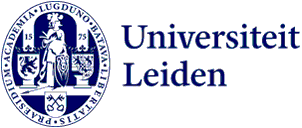
Annemie Halsema appointed professor by special appointment: ‘I want to contribute to thinking about diversity
The Institute for Philosophy further expands its knowledge: As of 1 September, Annemie Halsema holds the chair of Wijsgerige antropologie en de grondslagen van het humanisme (Philosophical anthropology and the principles of humanism, ed.). In the coming five years, she will study current societal issues from a humanistic perspective.

But what does the chair entail exactly? ‘Philosophical anthropology is the philosophical doctrine of humans,’ Halsema explains. ‘According to philosophical anthropology, we design ourselves and our own conditions. This also means that there is no such thing as a human essence. In addition, my chair looks at the principles of humanism. Humanism is a movement that assumes that humans have a responsible role in shaping their existence. Here, too, humans are considered to actively shape their own existence,’ she continues. It is therefore not surprising that both perspectives come together in one chair.
Diversity in humanism
Halsema mainly hopes to contribute to thinking about diversity in society. ‘We are currently very preoccupied with the question of how physical attributes determine our place in society. Think of societal movements such as #metoo and Black Lives Matter, which have opened the eyes of a lot of people to discrimination based on gender and race. An increasing number of my students identify as transgender and are making their lecturers and fellow students aware of the fact that we should be careful in how we address them,’ she lists. ‘Age is also an important factor that can lead to discrimination. During the COVID-19 crisis, for example, the elderly became part of a group of ‘vulnerable people’: sometimes this reflected their own experience, but for others this was a new label that they had to relate themselves to. All of these things lead to the importance of philosophical thinking about what gender, race and age mean and how we deal with it.’
Complex interactions
Halsema wants to spend part of her research time as a professor by special appointment on a book in which she links such cases to philosophical theories. This approach is also central to her education. ‘I will be teaching a third-year bachelor course in Leiden on gender, race and age. This course is also open to students from the VU University Amsterdam. Just as in my book, we will start from case studies in which gender, race and age are on the agenda, and highlight and analyse them using different philosophical perspectives,’ says Halsema. One of the cases is the story of South African runner Caster Semenya, whose body produces more testosterone than average. In 2009, the world athletics federation World Athletics subjected Semenya to a sex verification test. In the end, the athletics federation put a limit on the testosterone level women are allowed to have in their bodies, which resulted in the athlete being barred from participating in competitions. ‘What does that say about gender? Does it have anything to do with the experience of your own identity or with the testosterone level in your body?' suggests Halsema.
‘The nature-culture distinction is now widely accepted, think for example of the distinction between sex (body, nature) and gender (culture), but the reality is more complicated: there are all kinds of interactions between body, identity and social environment, so we need a different approach.’
Halsema has been appointed by the Socrates foundation of the Humanistic Association Netherlands. The aim of the foundation is to promote the study of current societal problems from a humanistic perspective. In addition to her appointment as professor by special appointment, Halsema works as a university lecturer at the philosophy department of VU University Amsterdam.
